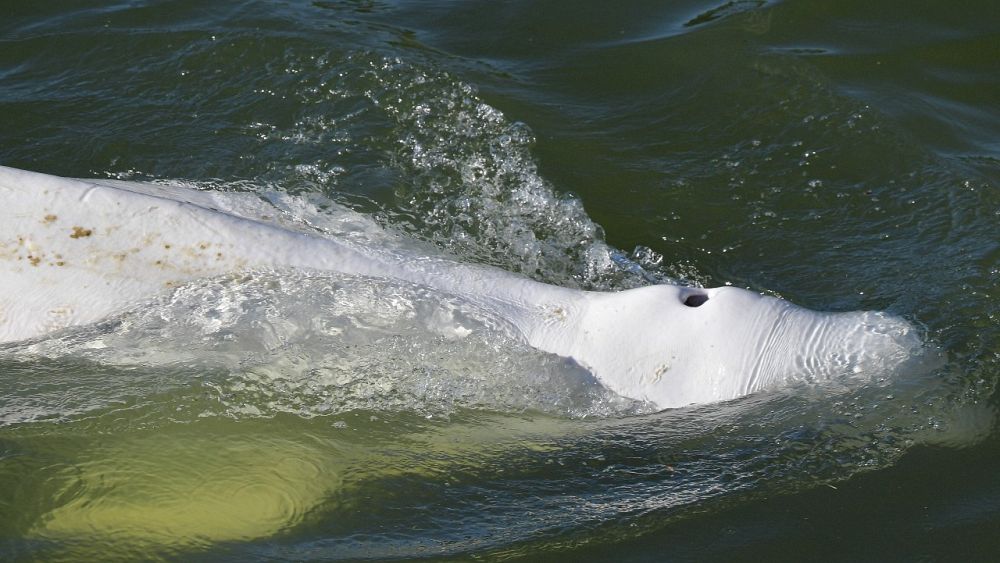Experts struggle to save beluga whale lost in France’s River Seine

A beluga whale which strayed into France’s River Seine was still not feeding on Sunday and showed signs of illness, leaving “little hope” for a successful outcome, experts said.
The four-metre long cetacean was spotted on Tuesday in the Seine. Its presence in the river is exceptional, as it usually lives in cold waters.
Since Friday evening, the beluga has been in a lock measuring about 125 metres by 25 metres, 70 kilometres northwest of Paris.
Lamya Essemlali, head of Sea Shepherd, the ocean defence NGO present at the scene, said that experts and authorities were faced with “a challenge” where there is “little hope”, when asked about the chances of saving the animal five days after it was discovered.
Several attempts to feed it, including using herring, trout and even squid, have been unsuccessful.
On Saturday, vets had even administered “vitamins and products likely to give it an appetite” in view of the beluga’s “physiological state”, the Eure prefecture said in a statement on Sunday morning.
The authorities noted that the whale was calm but appeared thin and showed signs of “skin alterations due to its presence in fresh water”.
According to Sea Shepherd, this lack of nutrition is not new. “His lack of appetite is probably a symptom of something else, an origin that we don’t know, a disease. He is undernourished and it goes back several weeks, even several months. At sea, he didn’t eat anymore,” Essemlali explained.
On Sunday, there was little optimism about the animal’s chances of survival and fears that it would suffer the same fate as an orca found in the same river last May were growing. Operations to try to save that creature failed and it finally died of starvation.
Sea Shepherd says it was ruled out the option of euthanising the beluga “for the moment”, as this would be premature.
Options such as opening the lock or forcing the whale out are considered highly risky.
“We are all sceptical about its ability to reach the sea by its own means. Even if we ‘freed’ him with a boat, it would be extremely dangerous, if not impossible,” Lamya Essemlali said.
Another possibility would be to extract him from the water and “take him to sea to feed him and provide him with additional vitamins, do a biopsy to get information on his origin and information on his state of health and what is making him ill”, she said.
In any case, it does not appear possible to leave him in the lock where the water is stagnant and warm.
“He has to come out in the next 24/48 hours, these are not optimal conditions for him,” the Sea Shepherd official explained at the end of a meeting with the prefecture, the French Biodiversity Office, the Pelagis observatory and a Canadian whale expert.
According to Pelagis, which specialises in marine mammals, the beluga “has an Arctic and sub-Arctic distribution. Although the best known population is found in the St. Lawrence estuary (Quebec), the closest to our coasts is in Svalbard, an archipelago located in northern Norway (3,000 km from the Seine)”.
According to the same organisation, this is the second beluga known in France after a fisherman from the Loire estuary brought one up in his nets in 1948.
In 1966, another whale travelled up the Rhine to Germany and in 2018, a beluga whale was observed in the Thames estuary in England.
